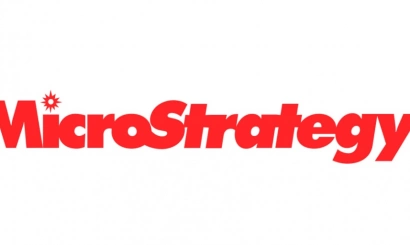ETFs for Ethereum are Hitting the Markets: What to Know About Companies and Funds
CBOE to Begin Trading Ethereum ETFs on July 23
The Chicago Board Options Exchange (CBOE) has confirmed that it will start trading shares of five spot ETFs based on the second-largest cryptocurrency by market capitalization, Ethereum, on July 23. Similar Bitcoin-based funds launched in January have been key catalysts for the cryptocurrency's price surge in 2024. U.S. regulators had long ignored applications for Ethereum funds but changed their stance abruptly in May, initiating their registration process.
What are Spot ETFs for Cryptocurrencies?
Spot ETFs (Exchange-Traded Funds) for cryptocurrencies are trading funds backed by physical Ethereum (ETH) coins. This means that fund issuers can only release shares if they hold a sufficient amount of ETH. These trading products allow investors to invest in Ethereum without owning it directly. ETFs also offer investors standard protections, including insurance against brokerage failures and cybersecurity risks.
The funds set to trade on CBOE include:
- 21Shares Core Ethereum ETF
- Fidelity Ethereum Fund
- Invesco Galaxy Ethereum ETF
- VanEck Ethereum ETF
- Franklin Ethereum ETF
Awaiting Approval
Four more funds are awaiting approval from the U.S. Securities and Exchange Commission (SEC):
- Grayscale Ethereum Mini Trust
- Grayscale Ethereum Trust
- iShares Ethereum Trust
- Bitwise Ethereum ETF
These might start trading on July 23 on NASDAQ, the New York Stock Exchange (NYSE), or the CBOE.
Impact on the Market
Cryptocurrency ETFs have existed on global exchanges in various forms for years, but none have impacted the market as significantly as U.S. spot ETFs. According to SoSovalue, which tracks inflows into American Bitcoin-based funds, these funds have attracted over $17 billion since trading began. Experts estimate that net capital inflows into Ethereum ETFs could range from $4.5 billion to $45 billion within six months to a year.
Staking in Ethereum ETFs
Initial applications from ETF issuers included the possibility of staking ETH to earn additional income from managed assets. Companies like Fidelity, BlackRock, and Franklin Templeton included this in their SEC filings. However, many later removed the staking element, possibly fearing that regulators might classify ETH managed by issuers as securities if staking was involved.
Staking allows holders to earn passive income without selling their coins by locking them up to become a validator in the blockchain network. Bitcoin does not support staking, whereas Ethereum does.
Despite this, the SEC leaves room for reconsidering its stance. Commissioner Hester Peirce indicated that including staking in Ethereum ETFs is "always open for reconsideration," according to CCN.
Competition Among Funds
It is expected that trading for spot Ethereum ETFs will be approved simultaneously for all funds, as it was for Bitcoin in January 2024. For most investors, the decisive factor is the management fee charged by the issuer. For eight of the nine ETFs, management fees range from 0.15% to 0.25%, with Grayscale Ethereum Trust (ETHE) being an exception with a 2.5% fee as it transitions from a trust.
Grayscale Bitcoin Trust (GBTC), a private trust for accredited investors since 2013, accumulated about $25 billion in BTC by the time it transitioned to an ETF in January 2024. Grayscale Ethereum Trust (ETHE), with nearly $11 billion in ETH, is undergoing a similar transition.
Grayscale has also introduced a second Ethereum ETF, the Grayscale Ethereum Mini Trust (ETH), which has the lowest management fee of 0.15% and offers a six-month period with no fees or until it accumulates $2 billion in assets under management.
Invesco Galaxy Ethereum ETF, Grayscale Bitcoin Trust (GBTC), iShares Ethereum Trust, and Fidelity Ethereum Fund have the highest fees at 0.25%. The iShares fund has a 12-month discount period at 0.12% or until it reaches $2.5 billion under management, and Fidelity will not charge fees until the end of 2024.
21Shares Core Ethereum ETF offers a 0.21% fee with a six-month no-fee period or until reaching $500 million under management. Bitwise Ethereum ETF and VanEck Ethereum ETF set their fees at 0.2%, with Bitwise offering a six-month no-fee period or until reaching $500 million, and VanEck providing a 0.2% fee with a one-year discount period or until reaching $1.5 billion. Franklin Ethereum ETF offers a 0.19% fee with a discount until the end of 2025 or until reaching $10 billion under management.






